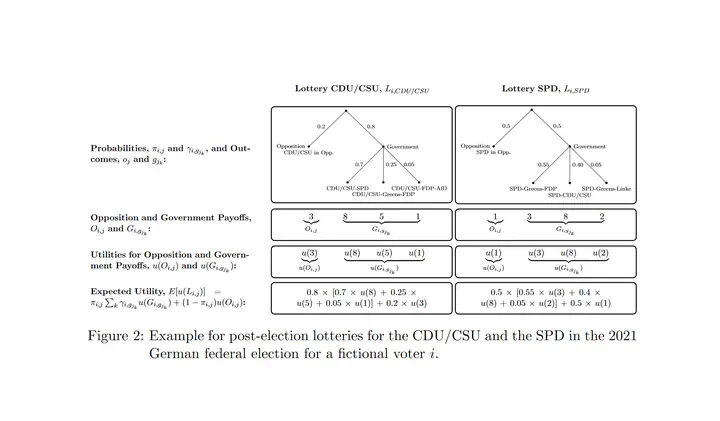
Abstract
When voters support parties in multi-party democracies, it is often uncertain what coalition government the party will join. How do voters deal with the lack of clarity in parties’ coalition government prospects? We develop a novel conceptualization of coalition-directed voting to study the effects of this type of uncertainty. We present observational and experimental evidence that supports the idea that voters are riskaverse when considering coalition government options. Observational survey analyses show that the perception of uncertain coalition prospects negatively affects the propensity to vote for such a party, even when holding the expected coalition government payoffs constant. Using a survey vignette experiment, we provide causal evidence that uncertain coalition prospects reduce the propensity to support a party, compared to certain coalition prospects given the same expected coalition government payoffs. Together, these findings provide insights for our understanding of party competition and parties’ coalition strategies.